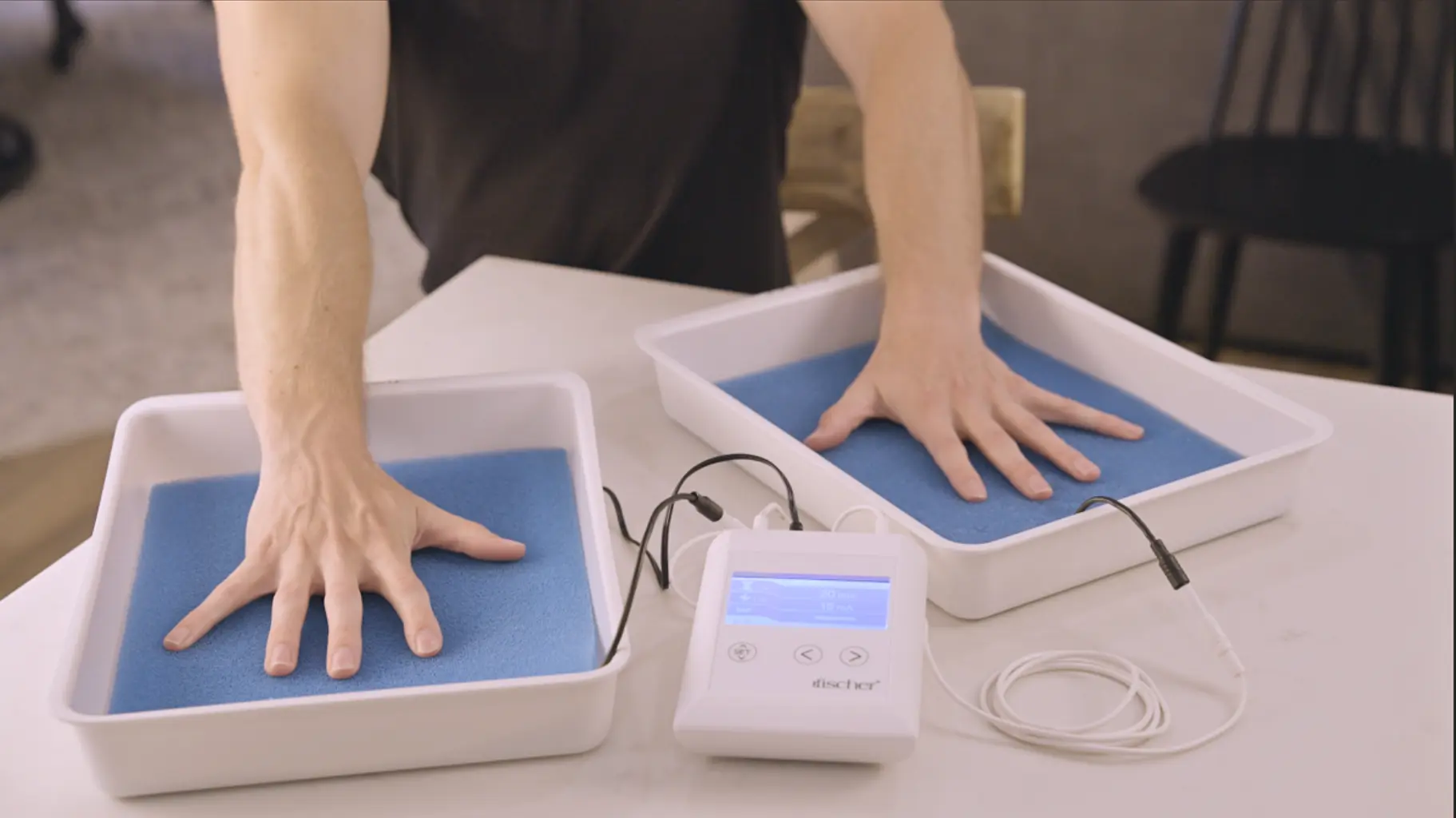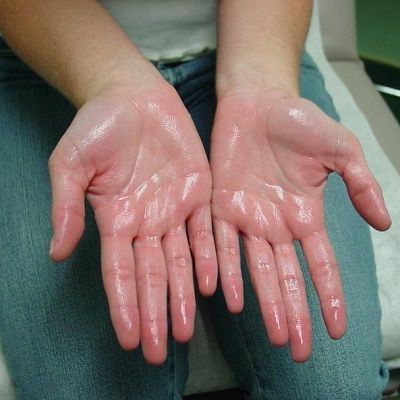Comprehending the Origin of Excessive Sweating and Its Influence On Every Day Life
Too much sweating, also called hyperhidrosis, is a problem that influences a significant part of the populace, yet its hidden reasons and implications on daily working stay rather enigmatic. While it is commonly understood as a physiological action to manage body temperature level, the triggers for too much sweating can differ widely among individuals, encompassing not only physical aspects however additionally psychological and emotional elements. The impact of this problem expands past plain pain, commonly affecting social communications and general high quality of life. By delving into the source of hyperhidrosis and exploring its multifaceted impacts, a much deeper understanding of this prevalent concern can be acquired, clarifying the complexities that people facing extreme sweating navigate daily.
Physiology of Sweat Glands
The policy of sweat production, a vital physiological process, is largely controlled by the activity of sweat glands dispersed throughout the human body. Sweat glands are classified into 2 primary kinds: eccrine and apocrine glands. Eccrine glands are the most many and are discovered in nearly all locations of the body. They play a crucial role in thermoregulation by secreting a watery fluid onto the skin's surface, which evaporates and helps cool the body down. On the other hand, apocrine glands are concentrated in areas abundant in hair roots, such as the underarms and groin, and their secretions are thicker and milklike in look.
When the body temperature climbs, either as a result of exercise, heats, or emotional stress, the nerves causes the gland to generate sweat. This sweat is made up primarily of water and electrolytes like sodium and chloride. The process of sweat manufacturing is essential for maintaining the body's interior temperature level within a slim, ideal variety, highlighting the vital function sweat glands play in human physiology.
Triggers for Excessive Sweating
In comprehending the root causes of too much sweating, it is important to recognize the triggers that can cause this physiological action. Excessive sweating, also referred to as hyperhidrosis, can be triggered by numerous aspects, both physiological and ecological. One usual trigger is emotional stress or stress and anxiety, which can stimulate the body's gland to produce more sweat than is essential for cooling down. Physical physical effort, heats, and spicy foods are also recognized to activate excessive sweating in individuals susceptible to this condition. Additionally, specific medical problems like menopause, hyperthyroidism, or diabetes mellitus can add to extreme sweating too.
Furthermore, medicines such as some antidepressants, opioids, and specific supplements can likewise function as triggers for hyperhidrosis. Recognizing these triggers is vital in managing too much sweating effectively - Treatment for hyperhydrosis of hands and feet. By determining and attending to the particular triggers that trigger too much sweating in a private, health care providers can develop personalized treatment strategies to relieve this condition and enhance the individual's lifestyle
Medical Issue Associated
Associated with too much sweating are different clinical problems that can intensify this physiological feedback. One usual problem is hyperhidrosis, a disorder characterized by extraordinarily raised sweating that goes beyond the body's thermoregulatory needs. This can show up in focal areas like the palms, soles, underarms, or face, impacting an individual's lifestyle due to social shame and discomfort.
In addition, endocrine conditions such as hyperthyroidism, diabetes mellitus, and menopausal hot flashes can likewise cause excessive sweating. Hyperthyroidism triggers an overflow of thyroid hormones, increasing metabolic process and activating sweating. Diabetes can generate sweating episodes, especially throughout hypoglycemic episodes when blood sugar level levels go down too low. Menopausal warm flashes, attributed to hormone fluctuations throughout menopause, can trigger intense and sudden sweating, frequently accompanied by flushing and heart palpitations.
In addition, infections like hiv, endocarditis, and tuberculosis have actually been associated with evening sweats, a common sign known to interrupt rest and influence general wellness. These clinical conditions highlight the varied series of underlying variables that can contribute to excessive sweating, requiring comprehensive analysis and management by medical care specialists.
Mental and emotional Aspects

Influence On Social Interactions
Extreme sweating can have extensive impacts on an individual's capacity to involve conveniently in social interactions. The visible indications of sweat spots or wet spots on apparel can bring about humiliation and self-consciousness, triggering individuals to take out from social scenarios. This withdrawal can affect partnerships, restriction social activities, and prevent personal and professional development.

Additionally, the stress and anxiety and self-esteem issues originating from extreme sweating can influence communication and social skills. Individuals might have a hard time to concentrate on conversations, take part in team activities, or reveal themselves confidently. This can cause feelings of isolation and isolation, as social connections end up being testing to keep.
Conclusion

While it is typically comprehended as a physiological feedback to manage body temperature, the triggers for extreme sweating can vary widely among people, encompassing not only physical factors yet also psychological and emotional components. By diving right into the origin causes of hyperhidrosis and discovering its multifaceted effects, a deeper understanding of this prevalent issue can be obtained, dropping light on the intricacies that people grappling with excessive sweating browse on an everyday basis.
Physical effort, high temperatures, and spicy foods a fantastic read are also recognized to cause excessive sweating in individuals susceptible to this condition. By determining and dealing with the details triggers that prompt excessive sweating in an individual, health care service providers can create individualized treatment strategies to relieve this problem and navigate to this site improve the person's quality of life.
Excessive sweating can have extensive impacts on a person's ability to involve conveniently in social interactions.